Disagreement after Herald Sun Tour neutralises gravel sector
Unplanned road works force peloton to take diversion onto dirt roads
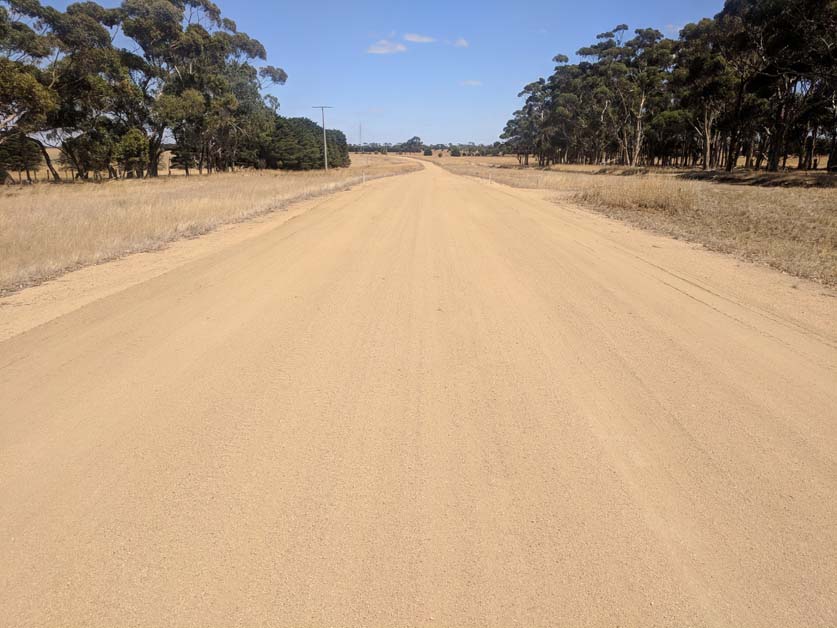
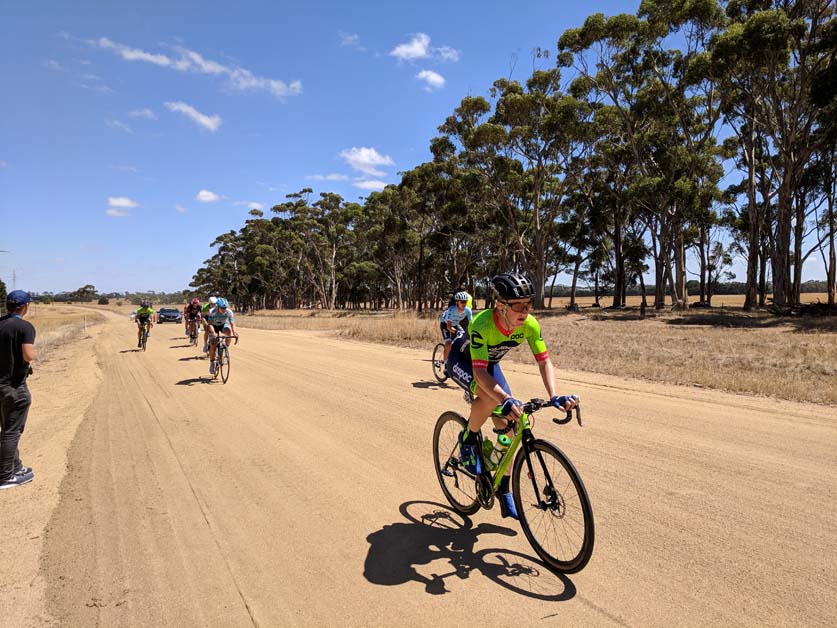
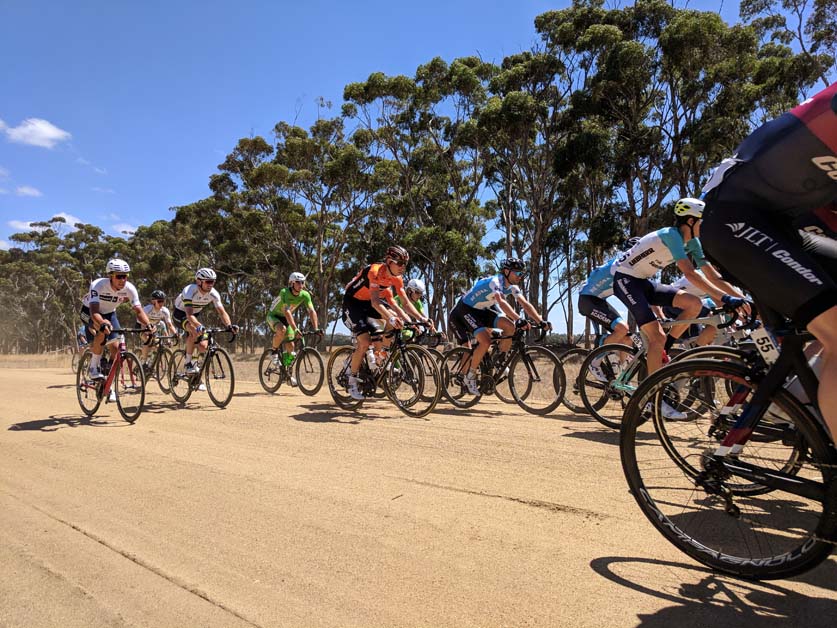
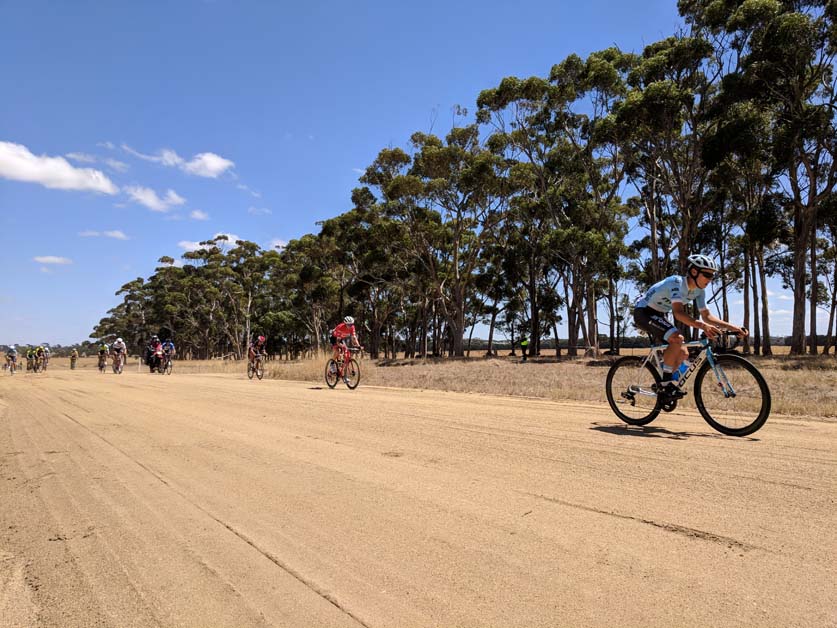
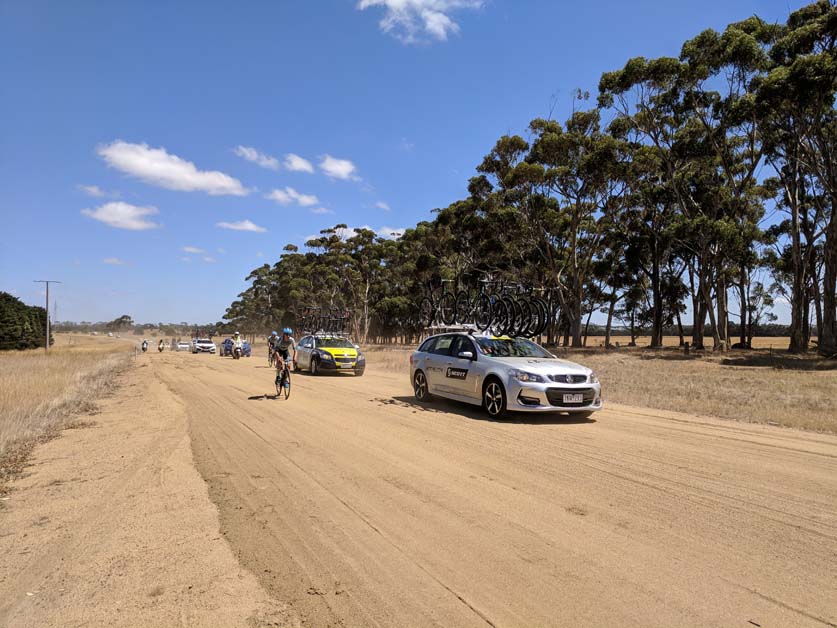
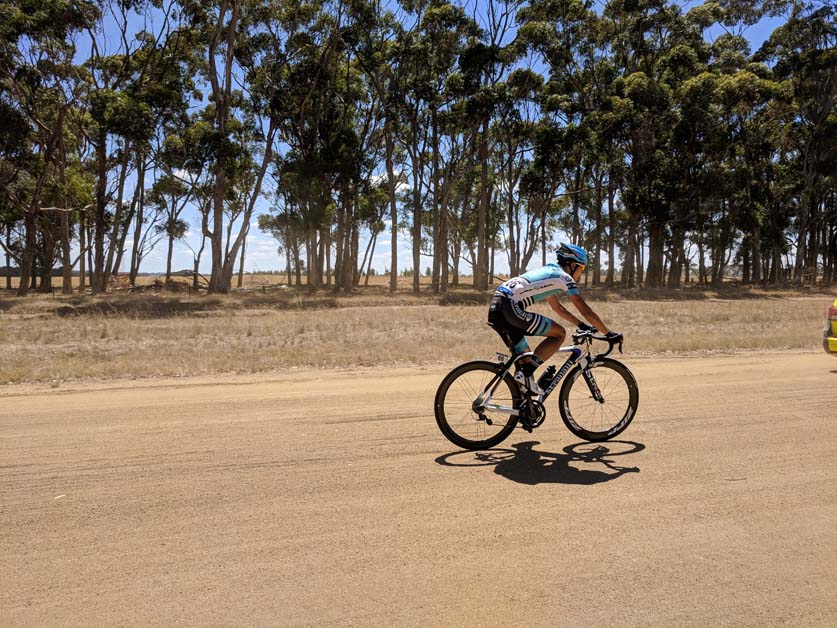
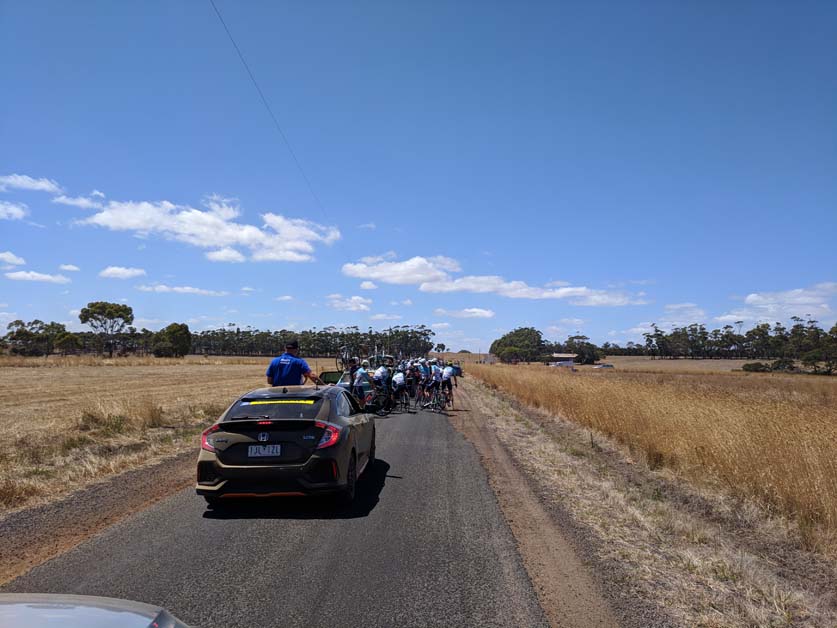
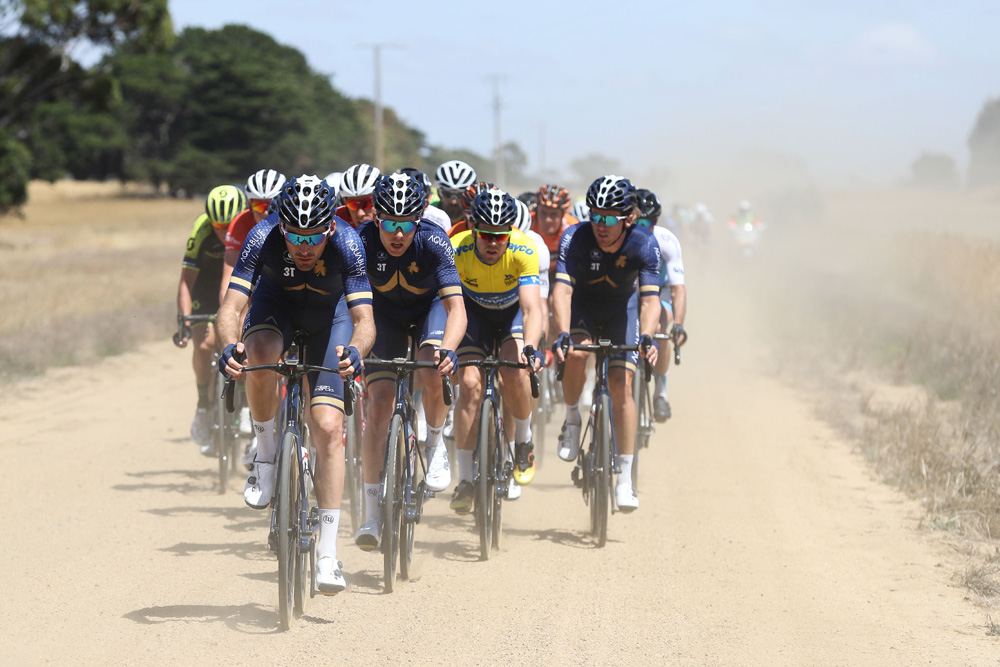
The Herald Sun Tour peloton got a surprise on stage 2 when they had to ride over gravel roads after roadworks forced organisers to take a diversion. The riders were originally scheduled to head along Foxhow road over Lake Corangamite, en route from Warrnambool to Ballarat, but that became untenable due to some roadworks being brought forward ahead of schedule.
The new route included a seven-kilometre sector of dirt and gravel road. Coming halfway through the 208.9-kilometre stage, the sector was neutralised by commissaire Greg Griffiths when both the breakaway and peloton was on the gravel, the main issue being that the dirt surface was too soft for the riders to navigate safely.
At the finish of the stage in Buninyong, which was won by Mads Pedersen (Trek-Segafredo) in a bunch sprint, opinions were mixed as to whether the right call had been made. For race director John Trevorrow, "it was the right decision" but not necessarily the one he wanted.
"It wasn't planned. We never planned to put the gravel in, but because of the roadworks, it was forced upon us. So that is what happened, a deviation because of roadworks," Trevorrow told Cyclingnews.
"I thought it was the right decision. It was disappointing, of course. We don't want to neutralise a bike race but that sometimes happens. Even in Milan-San Remo a few years ago things like that [happen]. That is bike racing, as they say."
Griffiths provided an explanation about his decision to CyclingTips post-stage.
"We were informed that the road would be firm enough to ride on, and maybe it was for the first few riders, but once they broke the surface then the road virtually collapsed,” he said. "Once I could see the riders in so much difficulty and gaps opening ... We had riders spread over one kilometre – I don't think it was sporting that the race continued, so I neutralised it. We timed the gap at the start of the dirt section, gave the breakaway riders that same gap at the end and you know the race continued on. I think it was the fairest thing to do."
The latest race content, interviews, features, reviews and expert buying guides, direct to your inbox!
Race leader Lasse Norman Hansen (Aqua Blue Sport) was against the decision, explaining he believed that without the neutralisation, the general classification would have been blown wide apart.
"We had the front as a team and had Trek with us like yesterday and if we would have raced from there, we would have had 10 guys left at the finish just like yesterday and I am sure I would have been there," Hansen said.
"It wasn't dangerous. There were some soft patches but as long as you straight lined them you were fine. I imagined some of the riders haven't tried racing a road bike on dirt before. We do it a lot on Denmark so I was used to it and I have done it a lot earlier."
Hansen's sports director Nikki Sorensen told Cyclingnews that "it was probably the right decision especially because it wasn't planned to start with."
For the stage winner Pedersen, the call was the right one considering the 100 kilometres still to race. But, he made clear that he isn't against the inclusion of gravel in races in general.
"It was so far out that in the end, it was a good decision. If it was with 40k to go, I would totally disagree to neutralise a race," he said. "But with 100k to go it is ok and everybody came through safe. For me, it was fine to do it today.
"It is gravel, it is not like asphalt, so it is a little bit more difficult but it is the same for everyone. It is not that big of a problem. We also do Strade Bianche and do 80 kilometres on it so that is racing."
Colombian climber Esteban Chaves, who Hansen was hopeful of eliminating in the GC battle, was one rider in full support of the neutralisation, as he told Cyclingnews and the Herald Sun after crossing the line in Buninyong.
"Of course, mate," Chaves said when asked if neutralising the stage was the right call. "That is a pretty dangerous place because it is soft. It is too dry. If it rained more here in Victoria in the last week, it would be awesome but it is too soft and too dangerous. It was a really good decision by the organisation," he said.
Chaves' teammate Alex Edmondson was also in favour of the neutralisation. The national champion was careful not to ignite any polemics, choosing his words with consideration when asked of the decision.
"I don't really want to get into it. It was a bit of a shame and obviously there are road works so we couldn't go down that road," Edmondson said. "There was only one way to do it and that was that. In an ideal world, you would have just gone straight down the highway but what they did was the right decision just for safety.”